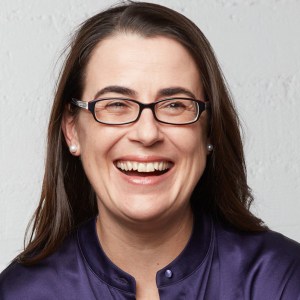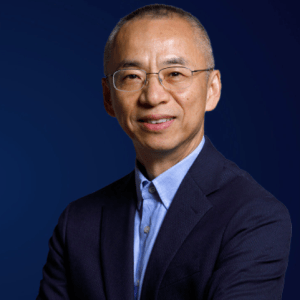TechCrunch is excited to announce the six companies pitching in person and onstage at TC Sessions Mobility 2022. Hailing from around the United States and the globe, founders will pitch on the main stage, for four minutes, followed by an intense Q&A with our expert panel of judges.
The judges for this pitch-off will be Yoon Choi (Muirwoods Ventures), Mar Hershenson (Pear VC) and Gabriel Scheer (Elemental Excelerator) on day one; and Sven Strohband (Khosla Ventures), Victoria Beasley (Prelude Ventures) and John Du (GM Ventures) on day two. You can find additional details on each of the judges below.
Alright, alright. I know you want to see who made the cut. Join us on Wednesday, May 18 and Thursday, May 19 to watch these incredible founders take the stage.
Startups pitching on the main stage
Day 1 — Wednesday May 18: 1:10 p.m.–1:45 p.m. PDT
Koop Technologies (Pittsburgh, PA, USA) — Presenter: Sergey Litvinenko, co-Founder and CEO
“Koop Technologies is an insurance platform for autonomous vehicles and robotics. The Singularity Platform is essentially a combo of three tools that Koop built: Koop API, Portal By Koop, and Insurability Sufficiency Framework (ISF). Koop provides autonomy insurance through data collection and proprietary analysis, wrapped up in the UX/UI provided by the portal.”
Boston Materials (Billerica, MA, USA) — Presenter: Anvesh Gurijala, founder and CEO
“Boston Materials is a high-performance materials company enabling manufacturers of industrial and consumer products to break through their design trade-offs with new materials. The company’s patented Z-axis Fiber technology is a lightweight material that has an extraordinary ability to diffuse energy (whether from impact, heat or electrical surge, for example). It is produced from 100% reclaimed carbon fiber, enabling new, high-volume, energy-efficient products that have a low carbon footprint.”
technology is a lightweight material that has an extraordinary ability to diffuse energy (whether from impact, heat or electrical surge, for example). It is produced from 100% reclaimed carbon fiber, enabling new, high-volume, energy-efficient products that have a low carbon footprint.”
Swyft Cities (Mountain View, CA) — Presenter: Jeral Poskey, CEO
“Swyft is a new form of urban mobility, using autonomous cabins on lightweight cable infrastructure to solve transportation problems in densely developed areas including corporate campuses, airports, universities and tourism districts. Swyft adds a new connection, increasing capacity to the site with an attractive alternative to automobiles. This adds capacity into an area, allowing higher density and more profitable developments. It also reduces costs on parking and traffic mitigation. In some areas, providing connections within the site can drive high value.”
Day 2 — Thursday May 19: 1:15 p.m.–1:45 p.m. PDT
Beyond Aero (Paris/Toulouse, France) — Presenter: Eloa Guillotin, co-founder and CEO
“Beyond Aero is making long range electric aircraft possible using hydrogen-electric propulsion. The first aircraft is a zero emission private aircraft (6-9 seat), designed for hydrogen propulsion, flying 1,000 miles in range.”
MeterFeeder (Pittsburgh, PA, USA) — Presenter: Jim Gibbs, co-founder and CEO
MeterFeeder powers parking payments, data and management for individuals, fleets and municipalities. “MeterFeeder allows individual users to pay simply with geolocation, fleets to remain compliant and rapidly pay when needed. MeterFeeder provides backend software, enforcement devices, and payment platform are cost-effective.”
DIMO (Brooklyn, NY, USA) – Presenter: Andy Chatham, co-founder
“DIMO enables a new class of mobility applications to be built by developers on real world data. DIMO based on a network of drivers and fleets to collect and share their vehicle data to learn more about their vehicle, save money, and build better mobility applications.”
Expert panel of judges
Day 1
Yoon Choi — Muirwoods Ventures
 “Yoon has been a Venture Investor and strategic partner to many Silicon Valley startups/founders for 18 years prior to Muirwoods. Yoon founded a seed fund, Forest Ventures focusing in automotive sector and was an investment director at SAIC capital, one of the leaders in China’s automotive industry. Before SAIC, she led the Corporate Venture Group at Maxim Integrated, where she led multiple strategic technology acquisitions and venture investments. Earlier in her career, Yoon was one of the founding members at Samsung Ventures.”
“Yoon has been a Venture Investor and strategic partner to many Silicon Valley startups/founders for 18 years prior to Muirwoods. Yoon founded a seed fund, Forest Ventures focusing in automotive sector and was an investment director at SAIC capital, one of the leaders in China’s automotive industry. Before SAIC, she led the Corporate Venture Group at Maxim Integrated, where she led multiple strategic technology acquisitions and venture investments. Earlier in her career, Yoon was one of the founding members at Samsung Ventures.”
Mar Hershenson — Pear VC

“Mar Hershenson is a co-founder and Managing Partner at Pear VC, a seed-stage investment firm in Palo Alto backing companies like Guardant Health (NASDAQ: GH), Doordash (NYSE: DASH), Gusto, and Branch. Mar has been recognized in the Midas List of Top Tech Investors in 2021.” Mar is a successful serial entrepreneur, with numerous industry accolades. Mar received her Ph.D. in Electrical Engineering from Stanford University in 2000 for her breakthrough work in circuit design automation.
Gabriel Scheer — Elemental Excelerator
 “Gabriel is the Director of Innovation, focused on mobility and energy, for Elemental Excelerator, a climatetech accelerator founded in 2009 in Hawaii. Previously, Gabriel was on the founding team at Lime, where he spent three years working on government relations, data policy, and transit partnerships globally. He has also worked at and consulted to Chariot, Zipcar, Superpedestrian, and Spin. In addition, he founded and ran a large environmental nonprofit and built a social innovation consultancy, as well as attempting to build a company to help small businesses pursue energy efficiency retrofits.”
“Gabriel is the Director of Innovation, focused on mobility and energy, for Elemental Excelerator, a climatetech accelerator founded in 2009 in Hawaii. Previously, Gabriel was on the founding team at Lime, where he spent three years working on government relations, data policy, and transit partnerships globally. He has also worked at and consulted to Chariot, Zipcar, Superpedestrian, and Spin. In addition, he founded and ran a large environmental nonprofit and built a social innovation consultancy, as well as attempting to build a company to help small businesses pursue energy efficiency retrofits.”
Day 2
Victoria Beasley — Prelude Ventures
 “Victoria is General Partner at Prelude Ventures, where her climate tech investments span mobility, food and agriculture, clean energy, sustainable apparel and carbon markets. Prior to Prelude Ventures, Victoria worked on climate change strategy at BCG and started an agriculture supply chain company. Earlier, she led Finance at a major solar manufacturer. Victoria holds an MBA and M.S. in Environment and Resources from Stanford University. She also holds a B.S. in Biology from the University of North Carolina at Chapel Hill where she was a Copland Scholar. Victoria lives in San Francisco with her husband and young son.”
“Victoria is General Partner at Prelude Ventures, where her climate tech investments span mobility, food and agriculture, clean energy, sustainable apparel and carbon markets. Prior to Prelude Ventures, Victoria worked on climate change strategy at BCG and started an agriculture supply chain company. Earlier, she led Finance at a major solar manufacturer. Victoria holds an MBA and M.S. in Environment and Resources from Stanford University. She also holds a B.S. in Biology from the University of North Carolina at Chapel Hill where she was a Copland Scholar. Victoria lives in San Francisco with her husband and young son.”
Sven Strohband — Khosla Ventures
 “Sven Strohband is a partner and managing director at Khosla Ventures, and led the firm’s early investments in Berkshire Grey, GitLab, Hermeus and Rocket Lab among others. An engineer at heart, Sven is passionate about technologies that forge new industries and accelerate novel user experiences.
“Sven Strohband is a partner and managing director at Khosla Ventures, and led the firm’s early investments in Berkshire Grey, GitLab, Hermeus and Rocket Lab among others. An engineer at heart, Sven is passionate about technologies that forge new industries and accelerate novel user experiences.
Previously, he spent six years at Mohr Davidow Ventures, where he led technical diligence for the infrastructure IT and sustainability practices and worked with the portfolio to recruit technical talent, run product-market fit experiments and develop fundraising strategies.” Strohband also served as PM at Volkswagen, led Stanford racing’s autonomous car, Stanley, co-founded Metamind, and sits on the board of various companies. He holds a B.A. from Purdue University and a Ph.D. from Stanford University.
John Du — GM Ventures
 John Du is a partner at GM Ventures and the chief technologist for GM China. Prior to this appointment, John was director of General Motors Research & Development organization’s China Science Lab, which he led from its founding in 2009. He was responsible for building a strong and innovative research team and leading the research and development in intelligent and connected vehicles, battery, advanced materials and electrified propulsion systems. Prior to GM, Du held several positions at Intel Corp as early as 1993, leading the Intel network processor business expansion in China in 2001; serving as Director of Intel China Research Center. John received his Ph.D. degree in Electrical Engineering from the Beijing Institute of Technology in 1989 and an Executive MBA from China Europe International Business School in 2010.
John Du is a partner at GM Ventures and the chief technologist for GM China. Prior to this appointment, John was director of General Motors Research & Development organization’s China Science Lab, which he led from its founding in 2009. He was responsible for building a strong and innovative research team and leading the research and development in intelligent and connected vehicles, battery, advanced materials and electrified propulsion systems. Prior to GM, Du held several positions at Intel Corp as early as 1993, leading the Intel network processor business expansion in China in 2001; serving as Director of Intel China Research Center. John received his Ph.D. degree in Electrical Engineering from the Beijing Institute of Technology in 1989 and an Executive MBA from China Europe International Business School in 2010.

 technology is a lightweight material that has an extraordinary ability to diffuse energy (whether from impact, heat or electrical surge, for example). It is produced from 100% reclaimed carbon fiber, enabling new, high-volume, energy-efficient products that have a low carbon footprint.”
technology is a lightweight material that has an extraordinary ability to diffuse energy (whether from impact, heat or electrical surge, for example). It is produced from 100% reclaimed carbon fiber, enabling new, high-volume, energy-efficient products that have a low carbon footprint.” “Yoon has been a Venture Investor and strategic partner to many Silicon Valley startups/founders for 18 years prior to Muirwoods. Yoon founded a seed fund, Forest Ventures focusing in automotive sector and was an investment director at SAIC capital, one of the leaders in China’s automotive industry. Before SAIC, she led the Corporate Venture Group at Maxim Integrated, where she led multiple strategic technology acquisitions and venture investments. Earlier in her career, Yoon was one of the founding members at Samsung Ventures.”
“Yoon has been a Venture Investor and strategic partner to many Silicon Valley startups/founders for 18 years prior to Muirwoods. Yoon founded a seed fund, Forest Ventures focusing in automotive sector and was an investment director at SAIC capital, one of the leaders in China’s automotive industry. Before SAIC, she led the Corporate Venture Group at Maxim Integrated, where she led multiple strategic technology acquisitions and venture investments. Earlier in her career, Yoon was one of the founding members at Samsung Ventures.”
 “Gabriel is the Director of Innovation, focused on mobility and energy, for Elemental Excelerator, a climatetech accelerator founded in 2009 in Hawaii. Previously, Gabriel was on the founding team at Lime, where he spent three years working on government relations, data policy, and transit partnerships globally. He has also worked at and consulted to Chariot, Zipcar, Superpedestrian, and Spin. In addition, he founded and ran a large environmental nonprofit and built a social innovation consultancy, as well as attempting to build a company to help small businesses pursue energy efficiency retrofits.”
“Gabriel is the Director of Innovation, focused on mobility and energy, for Elemental Excelerator, a climatetech accelerator founded in 2009 in Hawaii. Previously, Gabriel was on the founding team at Lime, where he spent three years working on government relations, data policy, and transit partnerships globally. He has also worked at and consulted to Chariot, Zipcar, Superpedestrian, and Spin. In addition, he founded and ran a large environmental nonprofit and built a social innovation consultancy, as well as attempting to build a company to help small businesses pursue energy efficiency retrofits.” “Victoria is General Partner at Prelude Ventures, where her climate tech investments span mobility, food and agriculture, clean energy, sustainable apparel and carbon markets. Prior to Prelude Ventures, Victoria worked on climate change strategy at BCG and started an agriculture supply chain company. Earlier, she led Finance at a major solar manufacturer. Victoria holds an MBA and M.S. in Environment and Resources from Stanford University. She also holds a B.S. in Biology from the University of North Carolina at Chapel Hill where she was a Copland Scholar. Victoria lives in San Francisco with her husband and young son.”
“Victoria is General Partner at Prelude Ventures, where her climate tech investments span mobility, food and agriculture, clean energy, sustainable apparel and carbon markets. Prior to Prelude Ventures, Victoria worked on climate change strategy at BCG and started an agriculture supply chain company. Earlier, she led Finance at a major solar manufacturer. Victoria holds an MBA and M.S. in Environment and Resources from Stanford University. She also holds a B.S. in Biology from the University of North Carolina at Chapel Hill where she was a Copland Scholar. Victoria lives in San Francisco with her husband and young son.” “Sven Strohband is a partner and managing director at Khosla Ventures, and led the firm’s early investments in Berkshire Grey, GitLab, Hermeus and Rocket Lab among others. An engineer at heart, Sven is passionate about technologies that forge new industries and accelerate novel user experiences.
“Sven Strohband is a partner and managing director at Khosla Ventures, and led the firm’s early investments in Berkshire Grey, GitLab, Hermeus and Rocket Lab among others. An engineer at heart, Sven is passionate about technologies that forge new industries and accelerate novel user experiences. John Du is a partner at GM Ventures and the chief technologist for GM China. Prior to this appointment, John was director of General Motors Research & Development organization’s China Science Lab, which he led from its founding in 2009. He was responsible for building a strong and innovative research team and leading the research and development in intelligent and connected vehicles, battery, advanced materials and electrified propulsion systems. Prior to GM, Du held several positions at Intel Corp as early as 1993, leading the Intel network processor business expansion in China in 2001; serving as Director of Intel China Research Center. John received his Ph.D. degree in Electrical Engineering from the Beijing Institute of Technology in 1989 and an Executive MBA from China Europe International Business School in 2010.
John Du is a partner at GM Ventures and the chief technologist for GM China. Prior to this appointment, John was director of General Motors Research & Development organization’s China Science Lab, which he led from its founding in 2009. He was responsible for building a strong and innovative research team and leading the research and development in intelligent and connected vehicles, battery, advanced materials and electrified propulsion systems. Prior to GM, Du held several positions at Intel Corp as early as 1993, leading the Intel network processor business expansion in China in 2001; serving as Director of Intel China Research Center. John received his Ph.D. degree in Electrical Engineering from the Beijing Institute of Technology in 1989 and an Executive MBA from China Europe International Business School in 2010.